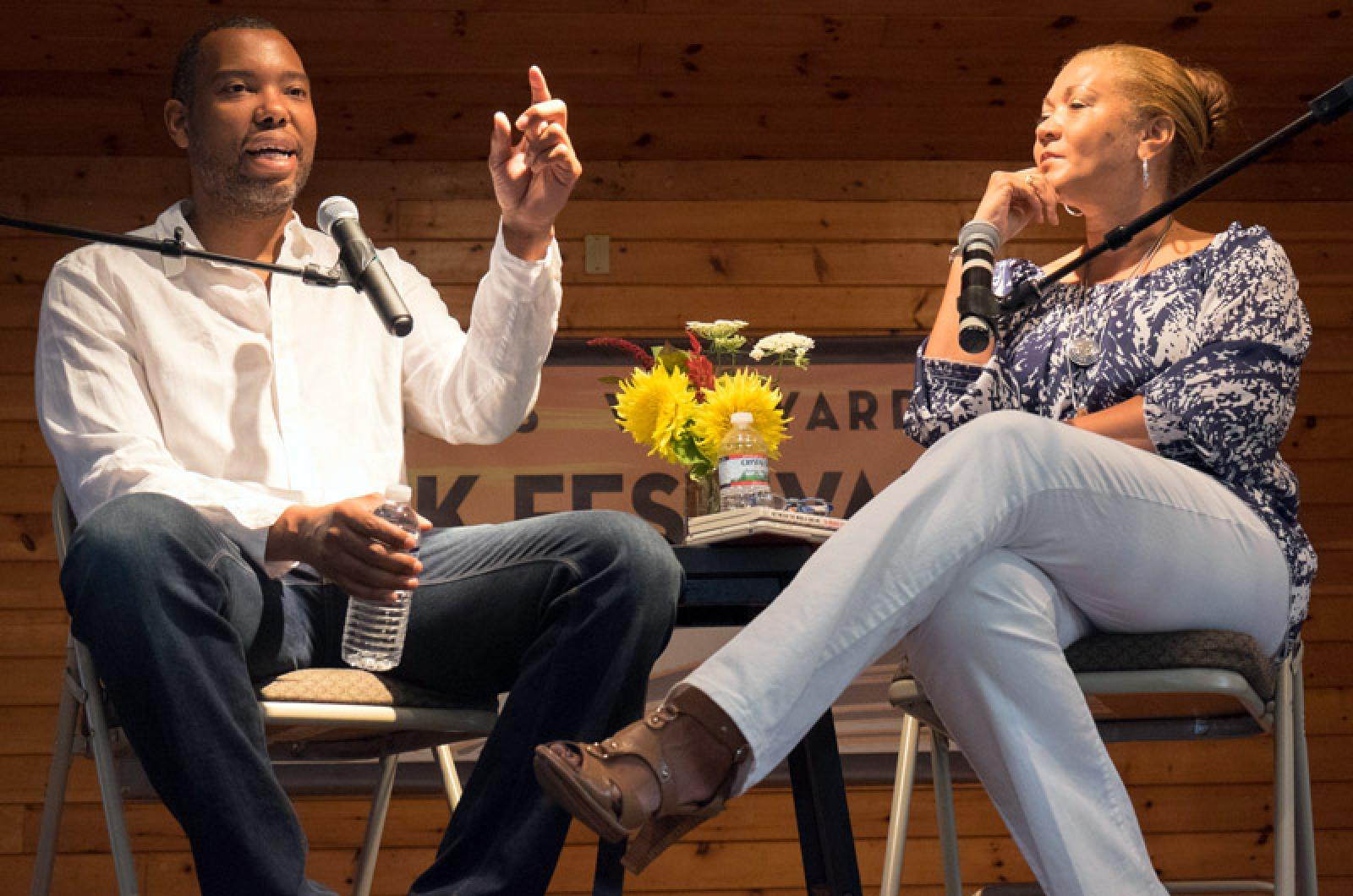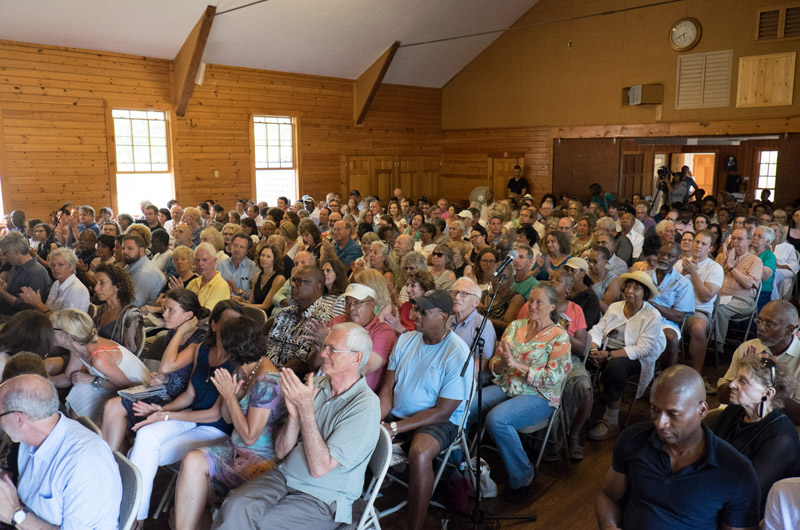Hundreds of people filled the Chilmark Community Center on Friday to hear award-winning journalists Ta-Nehisi Coates and Michele Norris discuss Mr. Coates’s new book and the idea of a post-racial America.
Sponsored by the Gazette, the sold-out discussion kicked off the sixth annual Martha’s Vineyard Book Festival, with talks and interviews with authors throughout the weekend. Mr. Coates’s new book, Between the World and Me, was released in July and quickly rose to the top of the New York Times bestseller list for nonfiction.
Ms. Norris, an NPR correspondent and founder of the Race Card Project — a national initiative to foster a discussion about race in America — served on the board of this year’s book festival.
As a warm summer breeze blew through the doorways of the community center where bouquets with sunflowers decorated the stage, the two writers spoke openly about Mr. Coates’s new book, the concept of race, and the centuries of black oppression that underlie American culture.
Between the World and Me takes the form of a letter to Mr. Coates’s 15-year-old son, Samori, in the spirit of James Baldwin’s 1963 classic The Fire Next Time. It also pays tribute to Richard Wright, Sonia Sanchez and other African-American writers whom Mr. Coates credits as inspirations.
Mr. Coates and Mr. Baldwin both address the politics of their time in stark, unapologetic terms. “It’s out of respect for the reader.” Mr. Coates said. “You give it as raw as you can.”
The American dream would not be possible, he argues in the book, without the centuries of black oppression that continues today.
He agreed with Ms. Norris that the book points an accusatory finger at white America. But he also argued, as Mr. Baldwin did, that the idea of a white race is “totally built on the idea of power.” Black identity, on the other hand, “has an ethnic and cultural component,” he said. “We are not the photonegative.”
Between the World and Me distills some of the feelings in the African-American community, in the wake of several high-profile killings of young black people in recent years. The dominant theme of the book is fear, which Mr. Coates said results from centuries of black oppression.
Noting the daily reports of violence toward African Americans, Ms. Norris wondered if this could be a moment for truth and reconciliation, akin to the efforts following the end of apartheid in South Africa. But Mr. Coates didn’t think so.
“There is nothing new about what is happening,” he said. “But it’s new that people are seeing it.”
He added that the current moment is somewhat distorted by the idea that police are the problem. “The police are just an expression of policy,” he said. He explained that in areas of high drug use, such as in Baltimore, you can be arrested simply for making eye contact with a police officer and running away.
“We could think about the [drug problem] from a public health perspective,” he said. “But we send in the hammers. And then when we send in the hammers we wonder why people get hammered.”
“You can literally go through almost every one of these cases and you can find the policy behind it.”
Ms. Norris wondered if the violence is itself borne of fear. Turning to the audience, she asked how many people had ever locked their car doors or clutched their belongings when seeing a black person. Almost no one raised their hand, although she said it happens all the time, even on the Vineyard.
Mr. Coates did not believe that the election of the nation’s first black president was enough to uproot centuries of oppression. Many people embrace the idea of a “post-racial America,” given the pain and violence surrounding issues of race, he said. “They do want to get past it, even if they are not equipped to do what needs to be done yet. It’s the dream: You press a button in a booth, you walk out, poof. It’s over.”
Author Tony Horwitz, who was also featured in the book festival, noted that people have a need to feel uplifted by stories of their past. He asked if the narrative of a benign United States history could be overthrown “without making our history such a bummer that no one even wants to read it.”
How to uproot that narrative while maintaining a civil society “is a really deep question,” Mr. Coates said, and the risk of being a “bummer” was something he thought about when writing the book. “How do you not retreat into despair?” he said.
He questioned the usefulness of thinking about what might be possible, since many activists never witness the full impact of their work. But he felt a sense of duty to his ancestors who struggled under slavery with no end in sight. “It would be the height of sin” to simply declare victory, he said.
“It has been rewarding to explore, it’s been rewarding to know, it’s been rewarding to struggle.”






Comments (2)
Comments
Comment policy »